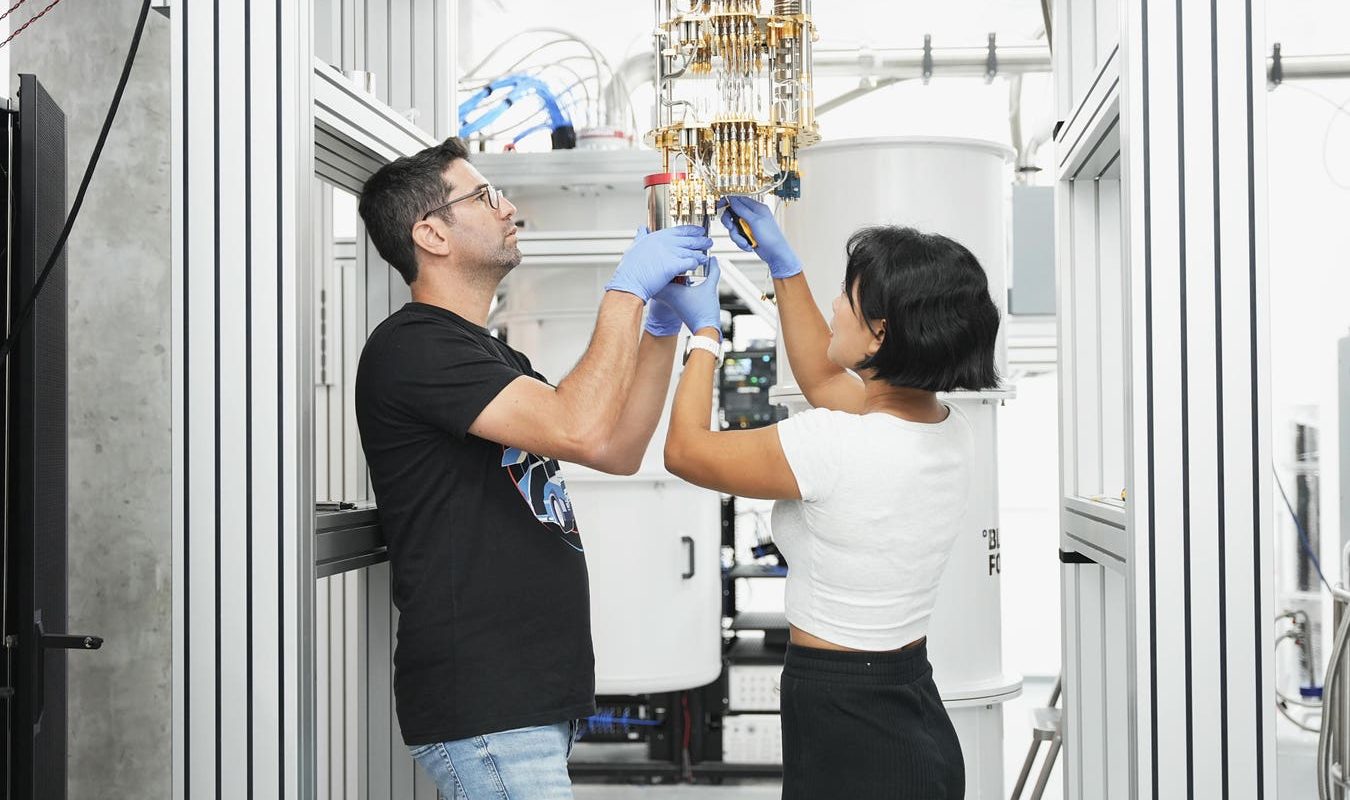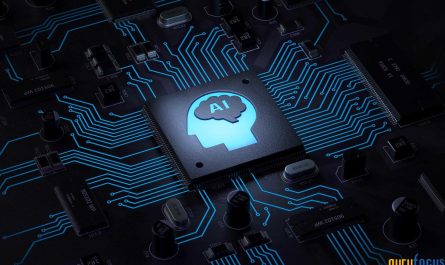The Quantum Computer at the Israeli Quantum Computing Center (IQCC).
“Quantum Technology is the largest paradigm shift in a generation,” says a recent comprehensive assessment of the current state of quantum computing from quantum research firm GQI. Quantum technology will have “a wide impact across all industry sectors” but all major approaches to quantum computing still face many challenges, say GQI analysts.
One of these challenges is the increasingly complex calibration requirements of quantum computing systems, a significant bottleneck slowing down efforts to scale them. “As we move toward systems with thousands of qubits,” says Yonatan Cohen, co-founder and CTO of Quantum Machines, “the challenge becomes exponentially more difficult. The traditional approach of manual calibration by quantum physicists simply won’t scale with our ambitions for larger quantum computers.”
Quantum Machines, Rigetti Computing, and Nvidia announced today the successful application of AI to automate the calibration of a quantum computer. With their AI-powered tools, Quantum Elements and Qruise, remotely automated the calibration of a 9-qubit Rigetti quantum processing unit (QPU) integrated with Quantum Machines’ advanced control system and Nvidia DGX Quantum. A unified system for quantum-classical computing that Nvidia built with Quantum Machines, it is hosted at the Israeli Quantum Computing Center (IQCC).
The use of AI tools, says the GQI report, “could unlock a new wave of algorithmic progress. Just as quantum hardware is expected to improve, quantum software improvements can play their part in closing the gap to quantum utility.”
Automated, rather than manual calibration, speeds up the lengthy preparation process of the quantum computing system. Also focusing on speed, AWS and Nvidia announced last week that they are joining forces to bring Nvidia CUDA-Q, its open-source quantum development environment, to Amazon Braket. GPU-based simulations on Braket have demonstrated up to 350x speed improvements over CPU-based simulations, enabling more efficient testing of quantum circuits.
Other large technology vendors have also maintained an accelerated rate of innovation: Google is collaborating with Nvidia to enhance quantum device design using simulations on the Eos supercomputer and introduced AlphaQubit, an AI-based decoder that identifies quantum computing errors with state-of-the-art accuracy; Microsoft achieved a breakthrough by entangling 24 logical qubits using neutral atom quantum computing; and IBM has developed a 1,121-qubit chip.
Investors are paying attention. Venture funding in the sector has reached new levels in 2024, according to Crunchbase data. Quantum computing startups have already raised $1.5 billion in venture funding in 50 deals so far this year, almost doubling the $785 million raised last year.
Similarly, the quantum computing sector in Israel has seen significant growth according to a recent report from Startup Nation Central. As of August 2024, Israel had 22 quantum computing startups, with total funding for the sector in 2024 already nearing the 2023 annual total by mid-year. “This suggests a strong potential rebound and growing investor confidence in quantum technologies,” concludes the report.
Investment in quantum technology is not just a private matter. Governments around the world are investing heavily in quantum computing, communications and sensing. As with AI, this is usually presented as primarily a race between two superpowers. China is “positioning itself as a dominant cyber and quantum technology player,” says Skip Sanzeri, founder and COO of QuSecure, and is considered the world’s leader in quantum communications.
In response, the newly proposed bi-partisan National Quantum Initiative Reauthorization Act would authorize $2.7 billion in federal funding to accelerate quantum research and development at federal science agencies for the next five years. The bill would refocus the National Quantum Initiative from basic research to practical applications and expand it to include other federal agencies such as the National Institutes of Health (NIH), State Department and Small Business Administration (SBA).
“Quantum computing has the potential to solve complex problems exponentially faster than existing computers,” says the U.S. Senate press release. “The technology could lead to breakthroughs in drug discovery, weather forecasting, financial and economic modeling, artificial intelligence, cryptography and other innovations. Quantum sensing applications can provide more precise measurements critical for navigation and tracking, seismic monitoring, infrastructure monitoring and geographical surveying.”



